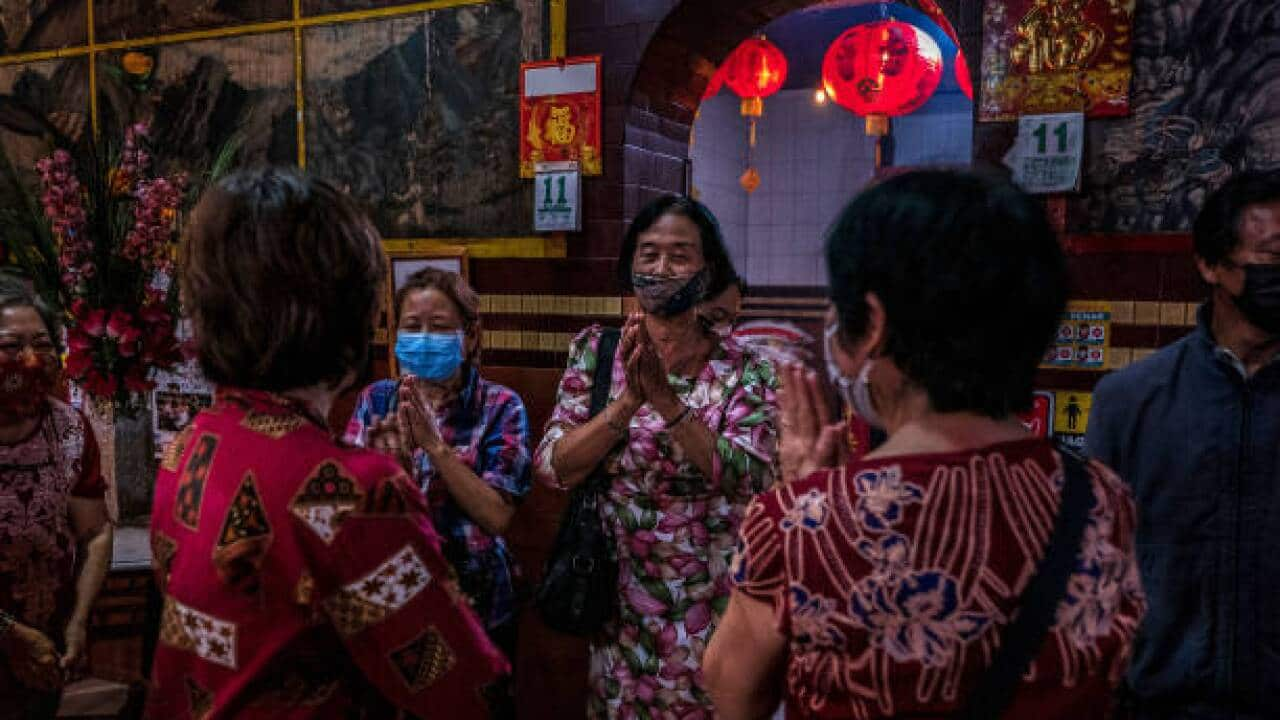Dr Siauw Tiong Djin is a business practitioner, researcher and a social activist. He explains to SBS Indonesian Program about the historical existence and the role of the ethnic Chinese in Indonesia since the colonial era until now. The Dutch used them as the middlemen which put the ethnic Chinese in a bad position in eyes of the Indonesians. Therefore, they often feel like a cash cow, or a shield or as a scapegoat. Dr Siauw Tiong Djin believe that ethnic Tionghoa is an integral part of Indonesia and should therefore be regarded the same as any other ethic group in Indonesia. Hence they should be allowed to maintain their identity.
Ethnic Tionghoa in Indonesia and their identity.

Indonesians Visit Temples On Lunar New Year. (Photo by Ulet Ifansasti/Getty Images). Credit: Ulet Ifansasti/Getty Images
While ethnic Tionghoa in Indonesia is currently free to practise their religion and celebrate their culture and traditions, the perception that they have a strong control of the country’s economy still persists. This is the result of a long government restriction in the past for Chinese-Indonesians from going into academia, public service and other governmental occupations, many of them to become businessmen. And yet, many of them are also labourers.
Share


